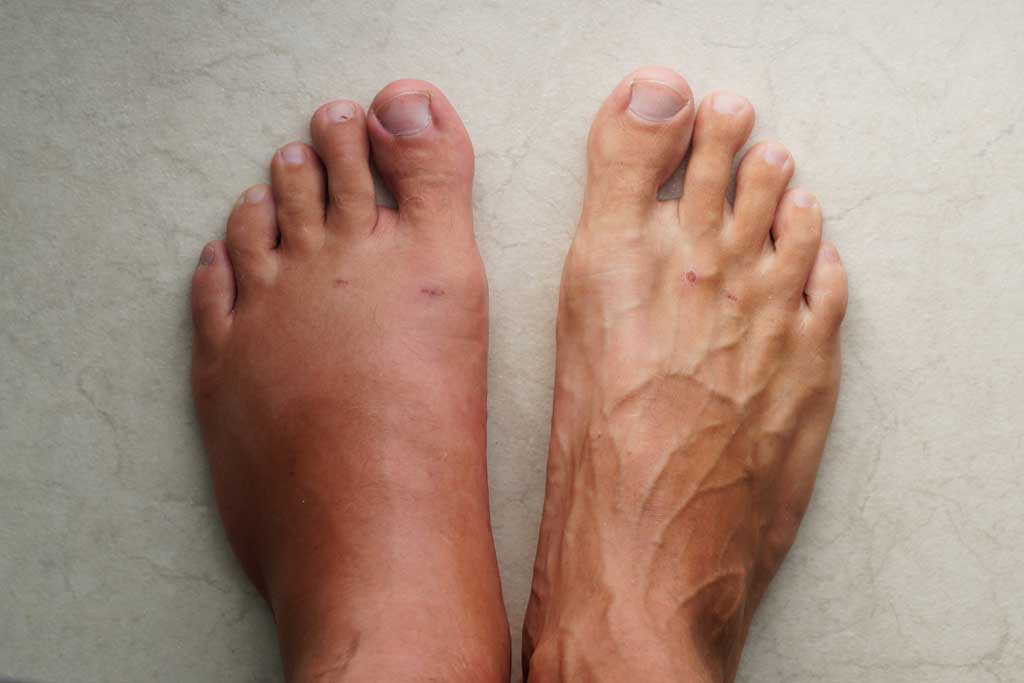Leg swelling is a common problem resulting from fluid buildup or inflammation. Fluid buildup occurs when leg tissues or blood vessels hold more fluid than usual. Spending a prolonged period on your feet, sitting for too long, being overweight, or having medical conditions can cause fluid accumulation. Inflammation occurs when your leg tissues get irritated or swollen. Inflammatory diseases like arthritis, breaking a bone, or tearing tendons or ligaments in your legs can lead to inflammation. In some instances, Port Saint Lucie leg swelling can heal independently. But in others, it can be a sign of a severe condition requiring medical attention. There are many causes of leg swelling, including:
Deep vein thrombosis (DVT)
Deep vein thrombosis is when you get a blood clot in your leg. The clot can break off and travel to your lung, known as pulmonary embolism. Pulmonary embolism can be life-threatening so ensure you seek immediate medical care if you have DVT. Leg swelling is the first symptom of DVT. Leg pain, tenderness, skin that is tinged red or blue, or skin that feels warm are other signs of DVT.
Varicose veins and chronic venous insufficiency
Varicose veins and chronic venous insufficiency happen when the valves in leg veins become damaged, and blood does not flow toward your heart. It backs up and pools in your veins, causing bluish varicose veins clusters on your skin. These conditions can lead to leg swelling. Other symptoms include achy legs, sores, pain after sitting or standing for a prolonged period, or dry, irritated, cracked skin.
Kidney problems
Chronic kidney issues occur when your kidneys do not function properly. They do not filter water and waste material from your body; instead, the fluid gathers in your body, causing arms and leg swelling. You can also have fatigue, shortness of breath, nausea, extreme thirst and bruising, and bleeding. Acute kidney failure can also cause leg, ankle, and foot swelling.
Medications
Sometimes leg swelling can be a side effect of taking specific prescribed medications. Some antidepressants, heart medicine known as calcium channel blockers, and hormone medications containing estrogen or progesterone can lead to swollen legs. Non-steroidal anti-inflammatory drugs like aspirin, ibuprofen, naproxen, and metformin medicine for diabetes can cause leg swelling. Consult your doctor if your legs become swollen after taking these medications.
Pregnancy
During the third trimester, your growing baby causes pressure on your leg veins. This pressure slows blood circulation and fluid buildup in your legs, causing mild swelling. If you notice other symptoms like severe swelling, especially around the eyes, bad headaches, and vision changes, you might have a severe condition called preeclampsia.
Infection or wound
When you get a cut, scrape, or wound in your leg, fluid, and white blood cells rush to the injured part, causing swelling. If swelling lasts more than three weeks after home treatment, seek medical attention. If your wound becomes infected, you can have more swelling. Swelling is normal, but it should start to improve after a few days.
Leg swelling is a common condition that results from fluid buildup or inflammation. Vein issues, kidney problems, infections or wounds, and pregnancy are some common causes of leg swelling. Schedule an appointment at TLC Medical Group Inc to treat your swollen leg to avoid future complications.



